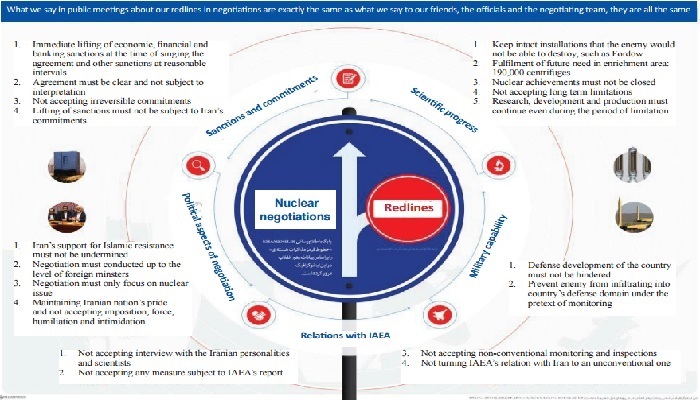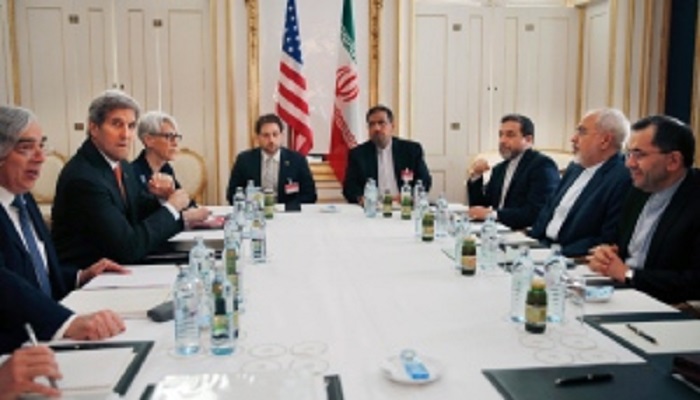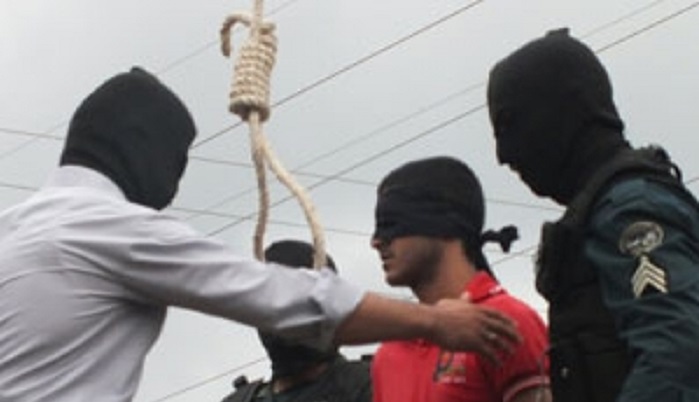 The announcement of an agreement between the Iran regime and the P5+1 group of nations sets the stage for a protracted fight over the next 60 days in Congress where the deal must be approved and failing that, an override of a certain veto from President Obama has to occur in order to prevent the mullahs from cashing in on what looks to be one of the most generous paydays since Rome was sacked by the Visigoths in the year 410.
The announcement of an agreement between the Iran regime and the P5+1 group of nations sets the stage for a protracted fight over the next 60 days in Congress where the deal must be approved and failing that, an override of a certain veto from President Obama has to occur in order to prevent the mullahs from cashing in on what looks to be one of the most generous paydays since Rome was sacked by the Visigoths in the year 410.
There will be an intensive amount of examination and dissection of the agreement’s provisions, but for today it’s worth looking at what some of the reaction has been and what it tells us about the real ambitions and aims of the Iranian regime.
“All Democrats, all Republicans should be looking at this deal very skeptically,” said Harvard University law professor Alan Dershowitz in an interview on Newsmax TV. “This should not break down into liberal, conservative, Republican, Democrat. It should be all Americans concerned about the possibility that Iran will develop a nuclear weapon in 10 years.”
“We have given Iran the path it has been seeking for almost 35 years. The other states in the region are not going to sit idly by, which is why in effect the nuclear arms race is already underway,” former U.N. Ambassador and Fox News contributor John Bolton said, adding that Iran and other nations have used civilian nuclear energy programs as cover for covert enrichment programs.
And from critics who know the intentions of the Iranian regime best came a strong statement from the National Council of Resistance of Iran’s leader, Mrs. Maryam Rajavi.
“There needs to be strict United Nations monitoring of the ‘cash poured into the regime’s pockets so that they would be spent on the Iranian people’s urgent needs,” said Iranian opposition leader Mrs. Rajavi. “Otherwise, Khamenei would continue to fund the IRGC (the Iranian regime’s Guards Corps) to export terrorism and fundamentalism to Iraq, Syria, Yemen and Lebanon.”
Ironically enough, Trita Parsi and Tyler Cullis of the National Iranian American Council, chief cheerleaders and lobbyists for Iran’s mullahs, offered an absurd argument in Foreign Policy describing a scenario where a lifting of the arms embargo against the regime would not alter the military balance in the region.
They cite the size of the military budget for Saudi Arabia and other Gulf states versus what the Islamic republic spends, but their arguments are not only incorrect, but deliberately false since Iran has not publicly reported its military spending since 2012 and does not include the vast expenditures it makes in military exports for proxies such as Hezbollah, Houthis and Shiite militias fighting in Syria, Yemen and Iraq.
They also ignore the centerpiece of Iranian military policy for the past five years which has been to rely heavily on paid mercenaries such as Afghan fighters, Shiite terror groups and paramilitaries to fight on behalf of the regime. In Syria’s case, Iran’s military dispatched 15,000 new fighters primarily made up of paid mercs alone.
When all of these other secret expenditures are taken into consideration, along with the size of the Iranian regime’s army, the mullahs’ firepower ranks 23rd in the world, exceeding the military capabilities of Saudi Arabia (ranked 28th), Mexico (31st), North Korea (36th), United Arab Emirates (50th) and Yemen (79th).
Which is why the arguments Parsi and Cullis posed strike at the heart of the needs of the Iranian regime; namely to get their hands on the $160 billion in frozen assets and foreign investment available to them, as well as the ability to sell two million barrels of oil on the open market each day again. The fact the Iran lobby has argued so passionately for lifting of the arms embargo shows the desperate need for the mullahs to restock their military hardware.
Over the next two months we will hear much debate over the specifics of the agreement, but what cannot be overlooked are the motivations of the mullahs in Tehran and the central flaw with this deal; which is it rests solely on the premise that the mullahs can be trusted.
It’s a deeply flawed premise given their actions over the past decade leading up to today which has never changed or deviated from the path of regional hegemony.
Congress would be well served to reject this deal because the choice is indeed between peace and war, unfortunately approving this deal will start a nuclear arms race, allow billions in new arms to flow to battlegrounds and spark a spiral into more wars.
By Michael Tomlinson
 July 9 has come and gone and yet another deadline has blown by in excruciating nuclear talks between the Iran regime and the P5+1 group of nations; totaling now six missed deadlines in the past two years.
July 9 has come and gone and yet another deadline has blown by in excruciating nuclear talks between the Iran regime and the P5+1 group of nations; totaling now six missed deadlines in the past two years.



